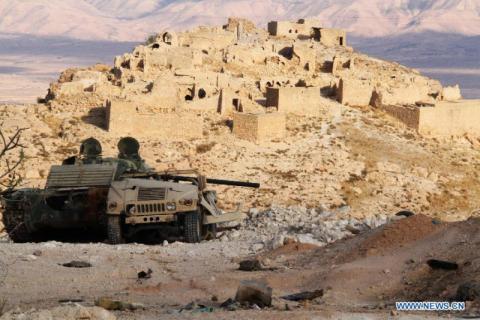
On 15 June 2015, Alkarama sent a communication the United Nations Special Rapporteur on torture (SRT) concerning the cases of 10 Libyan citizens all subjected to torture at the end of 2014. These cases are illustrative of the increasing use of torture by militias – in the present case, the Zintan brigade, a government-funded militia drawn from the garrison town of Zintan in northwest Libya, acting as the regular force of the internationally recognised government of Tobruk – who wish to intimidate, eliminate and punish all discordant voices.
Zintan brigade takes control of Kikla
On 10 November 2014, the Zintan brigade took control of the city of Kikla, 60 km east of Zintan. As they were entering the city, the Zintan forces arrested every person they found on their path for the sole reason that the population had remained loyal to the Government of Tripoli, and not to the Government of Tobruk, recognised by the international community amidst controversy in June 2014.
At least 39 civilians were summarily executed in the city and its periphery, and dozens of others were arrested, 10 of which report having been intentionally injured even though they were neither armed, nor posing a threat to the attackers. Taken away to the city of Zintan in military vehicles, the victims were thrown in prison in different parts of the city for an extended period of time.
Torture and incommunicado detention
Now released, they are being interviewed by Alkarama's researchers – local organisations' volunteers – in the city of Tripoli, where they took refuge after their city was seized by the Zintan militia. For fear of retaliation, all of them asked Alkarama not to divulge their identity.
Today, the victims of the Zintan's forces all require psychological support to overcome their trauma. All were severely tortured and subjected to all forms of inhuman and degrading treatment, particularly in the prisons of Al Manara, controlled by the military police, and Al Ajmi, operated by a commander of the Zintan militia, both in the town of Zintan. Torture varied from electrocution and suspension with lever machines, to beatings with sticks, wires and electric cables, as well as verbal abuse and insults, everything that would degrade the victims' dignity. The prisoners were forced to build fences that were destroyed after their construction, while forcing them to glorify the former regime. Some of them were placed in the "roast chicken" position in which the victim is stripped naked, his hands tied and his legs folded between his arms with an iron bar placed behind his knees, from which he is then suspended between two tables and beaten all over the body, in particular on his back and the soles of his feet.
One of the victims even suffered from hearing loss for six days as a result of violent blows to his head by the guard who used sticks and plastic wire. Another one was so seriously beaten and mistreated upon his arrival in the prison that he was not able to walk and had to crawl to his cell; unable to stand for 16 days, he was not even capable of going to the toilet, and for his entire time in detention, he was deprived from medical examination and treatment.
Not only were they subjected to vicious torture, but they remained in incommunicado detention for at least two months, without any contact with the outside world.
Alkarama's actions before the UN
In light of the information provided, Alkarama called upon the UN Special Rapporteur on torture (SRT) to urge Libya to "proceed to a prompt and impartial investigation" into these cases, as required by Article 12 of the Convention against Torture (CAT), "wherever there is reasonable ground to believe that an act of torture has been committed in any territory under its jurisdiction." As a State party to the CAT since May 1989, Libya must also prosecute those responsible of the acts of torture in line with international fair trial standards.
It is important to note that these are not isolated cases in Libya. To date, arrests and detention by armed groups constitute a widespread practice all around the country. Thus, and as the Zintan forces are acting as the Tobruk Government regular armed forces – that is with the full knowledge and consent of the authorities – Alkarama asked the SRT to remind the Libyan authorities of their obligations to respect and guarantee human rights and fundamental freedoms in all circumstances and to put an end to the increasing breaches including unlawful arrests, detentions, and torture by all parties involved in the hostilities.
For more information or an interview, please contact the media team at media@alkarama.org (Dir: +41 22 734 1008)
